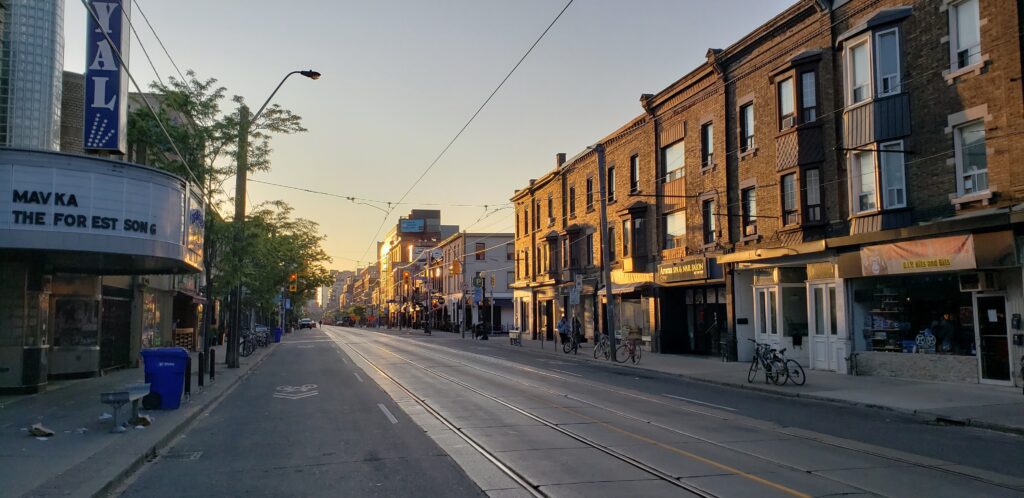Everything You Need to Know About Interest Rate Hikes in Toronto
08/18/22

In early 2020, the Bank of Canada (BOC) shrunk their policy interest rate in an attempt to minimize potential economic damages resulting from the COVID-19 pandemic. Fast-forward to 2022, and interest rates are back on the rise in order to offset inflation.
Since March of this year, the BOC’s policy interest rate has climbed from 0.25% to 2.5%. This increase, along with rising inflation and other economic factors are slowly pushing real estate in a new direction. While Toronto is no longer experiencing the seemingly unstoppable seller’s market of years past, today’s trends aren’t exactly as lopsided as some buyers and sellers may assume.
Whether you’re looking to buy, sell, or invest, here’s everything you need to know about interest rate hikes in Toronto.
Sign up for our newsletter to get the latest insights about West Toronto’s dynamic and evolving real estate market here.
Market Review
In 2020, a drastic drop in lending costs would create an outright buyer frenzy in Toronto. As the already strong market became even hotter, home prices began to skyrocket and hyper-competitive buying conditions became the norm. Two years later, the Bank of Canada would slowly begin incrementally increasing their policy rate, eventually surpassing pre-pandemic averages.
Today, mortgages are notably more expensive for Canadians. As a result, far fewer buyers are eligible to enter today’s market compared to the past couple of years. Now with a steady supply of properties becoming available and fewer buyers to compete for them, Toronto’s previously busy seller’s market is slowing down.
Are Home Prices Dropping?
Since the beginning of the year, average home prices have fallen just shy of 30%. While this drop may seem severe, it’s more of a correction than a crash. Between 2019 and 2022, the average price for detached homes in Toronto rose more than 45%. So while home prices are dropping today, they are still well above pre-pandemic prices.
Despite the departure from previous seller’s market conditions, it’s more accurate to say that today’s market is balanced rather than buyer-favouring.
Want to get the best return out of your upcoming home sale? Explore these strategic selling resources from our blog.
- What to Expect From a Home Showing
- The Power of Staging a Home to Sell
- Our Results-Oriented Approach to Selling
Is Now a Good Time to Buy a Home in Toronto?
Although home prices are still well above pre-pandemic averages, buyers today can enjoy other benefits compared to those who enter the market in 2020 and 2021. With a boost in available inventory, eligible buyers will have a greater selection of homes to choose from during their search. Plus, with less market competition, buyers can take their time in ensuring they find the right home for them, rather than compromise on their home wishlist or make an over-budget offer. For buyers who are still eligible within the current lending landscape, today’s market conditions could make it easier to land your dream home.
Is Now a Bad Time to Sell in Toronto?
While it may seem like sellers have missed out on the best market window, it’s important to put things into perspective. Today, home prices are still 15% higher than they were in 2019. That’s a value increase of 5% each year; a strong boost in value nonetheless. If you purchased your home earlier than 2019, you’re looking at an even higher increase in its value by percentage.
In short, there’s never a “bad” time to sell. And, by working with the right real estate agent, you can optimize your home’s performance on the market. Strategies like renovating, staging and tactical pricing can help your home sell quickly and for a great price.
Will My Mortgage Payment Increase?
While rising interest rates will mainly impact buyers and sellers, there are a few things homeowners should be aware of. First and foremost, if your mortgage is up for refinancing soon, you will see a slight increase in your monthly payments.
For every quarter-point increase in your mortgage rate, your monthly costs will increase by just $11 for every $100K owed. Despite being a relatively small change, it’s worth doing the math to help you budget in advance.
Need a crash course on home financing? Check out these mortgage-focused blog posts.
- How Soon Should I Pay Off my Mortgage in Canada?
- Can Your Bank Deny a Mortgage Renewal?
- How do Second Mortgages Work?
How Long Will These Market Conditions Last?
Like any new economic trend, it’s impossible to know exactly when things will change next. However, it’s once again important to put things into perspective.
During the pandemic, housing prices in Toronto entered a bubble. Today that bubble is deflating, resetting the aggressively seller-favouring market dynamics. These “new” market conditions are more of a return to normalcy than an economic anomaly.
A neutral real estate market is unlikely to be impacted drastically without further changes to interest rates. While interest rates may rise once again before the end of the year, it’s unlikely that they will decline until inflation is more broadly under control in Canada.
In a global city like Toronto, real estate trends can change at a moment’s notice. Stay up-to-date by reading our most recent market updates here.
Sign Up For Our Newsletter
Looking for more great real estate content? Get it delivered to your inbox with our newsletter!

